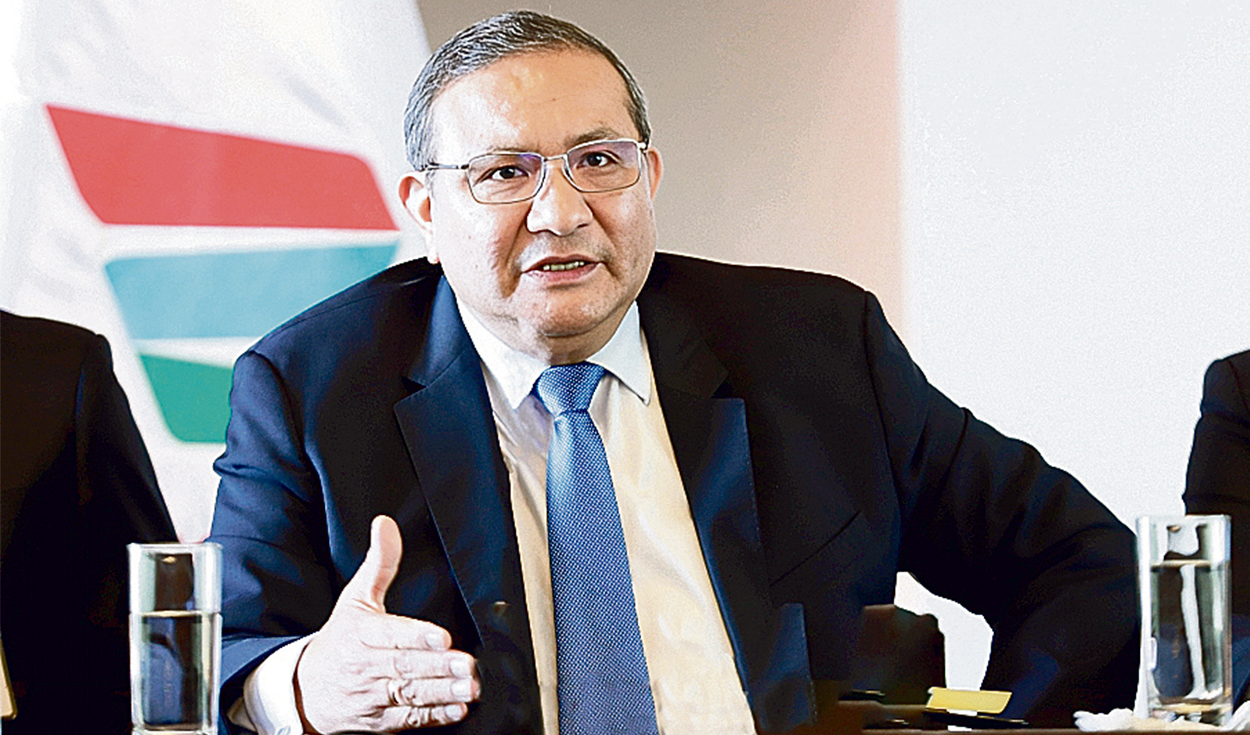
Although the Talara Refinery is 100% ready, Petroperú does not operate it at full capacity, as it still has to recover positions in the market. Pedro Chira, head of the state company, expects to go from 27% to 35% participation in the first quarter, especially in Lima, whose offer is currently dominated by its main competitor, Repsol.
—How much has been requested?
—As cash, we have requested US$1.15 billion. The other three lines have to do with the capitalization of the US$750 million loan for 2022, an extension of the guarantee for a loan of US$650 million, and an extension of the guarantee with the Banco de la Nación for letters of credit of US$500 to US$1,000 million, which serves us for foreign trade. The information we have is that this contribution is still under evaluation.
—But we must also count the US$750 million.
—It is true, it is a loan that we had to repay and the company’s request is that it be capitalized or give us a longer payment period. Everything had to be paid in 2024, and in January it amounted to around US$70 million in principal plus interest.
—Why so much interest in removing Petroperú from the market?
—The departure of Petroperú would not benefit Peruvians, but rather our competitors. By entering with a modern refinery with optimal refining margins, we are going to offer products at competitive prices and, whether they like it or not, with that position of 27%-30% of the market we will begin to be a reference and it will force competitors to work on the Talara marker. Those 2 or 3 market points are huge million-dollar losses for them. That has many people worried and they attack by every means they can.
—But they still repeatedly ask for ransoms.
—It is a lie that Petropéru is always asking for ransoms. They are judging us for the last two years, 2022 and 2023, where a loss of qualification, an increase in the cost of credit lines to fulfill our subsidiary role through the import of fuels, and the purchase of crude oil for the refinery coincided. Now, the load appears again with the aim of privatizing the refinery, at a time when it could offer a lower value to the market, so that private groups continue their business. That should not be allowed.
—So, what is your role?
—Petroperú is the only company that, due to its subsidiary role, brings fuel to the most remote places, especially in the south, center and east of the country. To fulfill that role, it has an infrastructure that no other company has. Disappearing Petroperú would mean selling those assets, starting to divide them up and prioritizing coastal markets. In addition, it supplies the FF. AA. and PNP 100% in the fight against terrorism, wars or climate disasters, so we would be left unprotected.
—Don’t they operate at a loss?
—This is a business, no one creates an industry to lose, Petroperú must contribute to the State and that is what it has always done, even with a subsidiary role. Since 1991 and even in covid, we always had profits. Who are interested in things going wrong for us? Logically, the importers and the competition. The ‘opinologists’ who previously celebrated that the refinery did not start. But, since it has already started, now we have to talk about its cost.
—But, unlike them, you don’t have taps.
—Although we do not have taps, we do have chains with 780 associated stations, which are private. In our commercial agreements we will try to ensure that our competitive prices are transferred to the market of ordinary citizens.
—How are your lines?
—The rating downgrade in March-April 2022 affected our credit lines. Before we had between 75 and 80. Petroperú worked with lines worth around US$3.3 billion to carry out its import business, but lines worth US$1.7 billion have been lost or restricted and the ones we have active have increased their rate from 2% to around 10%.
—What if they don’t support them?
—We are working on additional financing lines and other actions that we would have to evaluate after the response, in addition to renegotiating our debt. But it must be considered that obtaining new financing will be expensive due to the circumstances and would put the company in more debt, although it is the path that should be taken. Therefore, we expect a positive response from the shareholder.
Source: Larepublica
Alia is a professional author and journalist, working at 247 news agency. She writes on various topics from economy news to general interest pieces, providing readers with relevant and informative content. With years of experience, she brings a unique perspective and in-depth analysis to her work.












